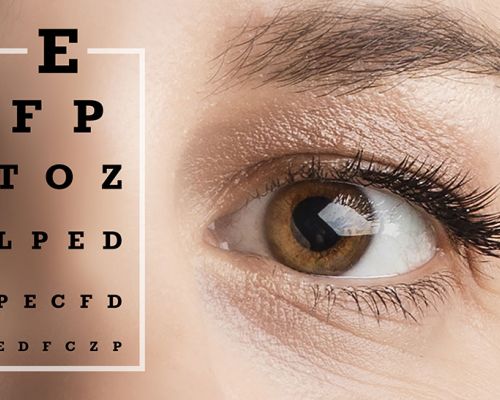Formation of a cataract is part of the normal aging process of our eyes. The normally clear crystalline lens that sits in a bag behind the iris (coloured part of our eye) begins to get cloudy as the proteins in the lens begin to opacify and scatter light, eventually blocking the light from entering the eye leading and to reduction in vision. There are other causes of cataract for example trauma, metabolic conditions like diabetes, congenital cataracts where children are born with or develop cataracts very early in life.
The early symptoms of a cataract are glare, hazy vision, difficulty in reading, monocular double vision. Cataracts can develop simultaneously in both eyes, but generally one eye has more advanced cataract than the other.
How does one know when the eye is ready for cataract surgery? You may find that you are beginning to develop the symptoms of cataracts and that it is beginning to interfere with your daily routine activities of driving, reading, watching TV or it interferes with your leisure activities. Often it is your optician who notices that you have developed cataracts and is unable to alter your prescription to improve your vision and so recommends cataract surgery. It may be that you are under a screening programme for Diabetes for example and the photos of your retina are now unclear due to the development of a cataract.
This is when you would come to see me for discussion and consideration of cataract surgery. I will assess your eyes, look at the spectacle prescription that your optician would have given you, ask you if you have had any previous eye surgery including lasers. I will discuss your general health, your lifestyle and what you would like to achieve from having a cataract operation. It is important for me to know what your expectations of cataract surgery are, how important driving is to you, especially driving in the dark. Do you read a lot, or do you spend a lot of time on your computer? Can you lie flat? Are you on any blood thinners or medication for bladder problems? All of this will help us in deciding together what the best intraocular lens (monofocal, multifocal, EDoF, etc) is for you and what method of anaesthesia suits you best.
Once we have ascertained that we are going to go ahead with cataract surgery, I will need to take some measurements of your eyes, put drops into your eyes to dilate your pupils and then plan with you the next steps of surgery. Remember you will not be able to drive for at least 2hours after the dilating eyedrops have been instilled into your eyes.
Once we have decided on your surgical plan, you will be given a date for surgery.
Majority of cataract surgery is done under local anaesthesia either using topical eyedrops alone or by using a canula to deliver the anaesthetic around your eye to numb it.
On the day of surgery, you will be admitted and assessed by a member of the nursing team, who will instil dilating drops into the eye to be operated. I will see you prior to the operation and mark your eye. You will then be taken to the operating theatre, where you will have the appropriate anaesthetic. You will need to lie relatively flat for the duration of the operation. A drape (a cover to keep the area sterile) is placed over your face. The operation itself typically takes about 20 minutes to perform.
After the surgery you are taken back to the ward and can then go home after an hour or so. You cannot drive home, you will need to make arrangements to be picked up. It is advisable that a responsible adult stays with you for the first 24 hours following surgery.
Once home, you will have to take it easy for 2-3 days. You can resume light activities like walking the same day. Avoid swimming for 4 weeks. You can resume short distance driving after 3-4 days if the vision in your non-operated eye is good for driving.
You will need to instil drops 4-6 times a day for 4 weeks. After this you can see your optician to update your spectacles.
It’s natural to feel anxious when it comes to treatment and surgical procedures especially in relation to your eyes. I encourage you to ask questions about your condition, so I can help you to be better informed of your condition, the treatment options available and allay any fears that you may have. During the consultation I will explain the procedures to you and help you to make positive choices, and remember there is always the option of doing nothing, so you have nothing to worry about.


